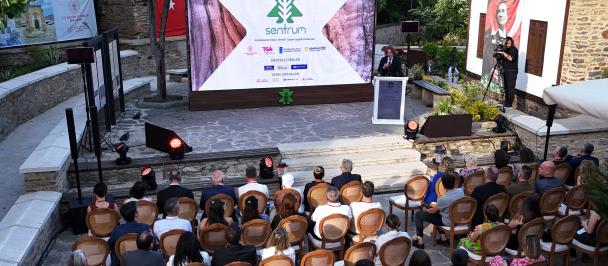Under the project “I Can Manage My Money”, one-on-one training was given to more than 1 million youth, entrepreneurs and farmers.
The Project contributes to achieving six of the Sustainable Development Goals. Implemented by a partnership of the United Nations Development Programme (UNDP) and Habitat Association with the support of Visa Turkey and 22 banks, “I Can Manage My Money” has become in its 10th year a project with a wide impact in 81 provinces with 2,000 volunteer trainers. One-on-one training was given to more than 1 million youth, entrepreneurs and farmers.
The Project supports 6 of the 17 Global Goals through various activities
Training sessions under “I Can Manage My Money” focus on budgeting, controlled spending, saving, investment, borrowing, financial rights and obligations. Through such training content, the Project contributes to “Quality Education”, “Responsible Consumption and Production” and “No Poverty”. It also supports the “Partnership for The Goals” both by the concerted cooperation among project partners and by the collaboration of 22 banks to enhance financial literacy. All activities under the Project prioritises gender equality. Training is delivered to five segments namely high school students, university students, young adults, entrepreneurs and farmers. Training is delivered in 81 provinces to a wide range of recipients at high schools, universities and a multitude of spaces allocated by municipalities and governorships. The Project thus contributes to “Gender Equality” and “Reduced Inequalities” as well.
Financial Literacy Map in Turkey
In the context of the project “I Can Manage My Money”, the Financial Literacy and Access Association (FODER) with support from Visa and 22 banks in Turkey mapped out financial literacy in Turkey through the “Financial Literacy Survey in Turkey” conducted last year. Survey results indicate that 70% of the population in Turkey has minimum financial knowledge. Two out of every five persons can save money. Of those saving money, one half reports to be saving against such contingencies as health problems, natural disasters or abrupt loss of employment. Another striking finding from the survey is that individuals take care to act in discipline about repaying their loans. Quantitatively, 83% of the society repays loans (/loan instalments) on time.
Financial Literacy Levels
The golden rule of financial literacy is not to spend beyond income. The first step in making a good budget is to regularly write down all expenditures. You can use a notebook for this purpose. Classify your expenditures under categories of domestic, clothing, food, vacation, health, gifts etc. Categorise your expenditures into two main groups: needed and desired. Common sense will guide you. Do not forget that you make the budget for yourself. Be honest to yourself. Make a permanent habit of budgeting. As the survey findings suggest, the Turkish society is categorised into 5 major groups by financial knowledge, attitudes and behaviours namely: Financially Wise, Modest Parents, Thrifty Conservatives, Unplanning Dreamers and Unconcerned Youth.
The Financially Wise, more knowledgeable and ambitious than others on financial matters, constitute the group with highest financial literacy. They make up 22% of the society, are middle-aged, have higher rates of business owners, and higher household income than other segments. They manage their money intelligently, do the saving and expenditures consciously, generally make budgets, and do not default on their payments.
The Modest Parents, accounting for 24% of the society and mostly middle-to-upper age, cut their coats according to their cloth (or in Turkish expression: stretch their feet according to their blankets). They endeavour to make long-term plans for family future and retirement. The prefer not to borrow, never delay payments. The Thrifty Conservatives tend to use their money in a thriftier way. Constituting 20% of the society, they try to think for the long-term and save for the children but their financial circumstances may be challenging. They can only spend for the basic needs, do not have the flexibility to spend unnecessarily.
The Unplanning Dreamers and Unconcerned Youth appear as the segments mostly comprising the youth. Not yet married and not with children, and with limited income, the Unplanning Dreamers make up 19% of the society. They dream of a wealthy future and are ready to take on risks for that end. But they fail to act in discipline and plan on money matters. Constituting 15% of the society, the Unconcerned Youth have the lowest level of financial knowledge. Without a job and regular income, this group lives for today. They do not make budgets, or save money.

 Locations
Locations




